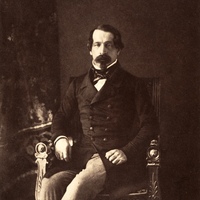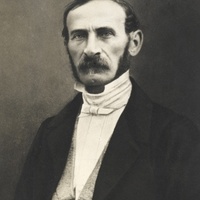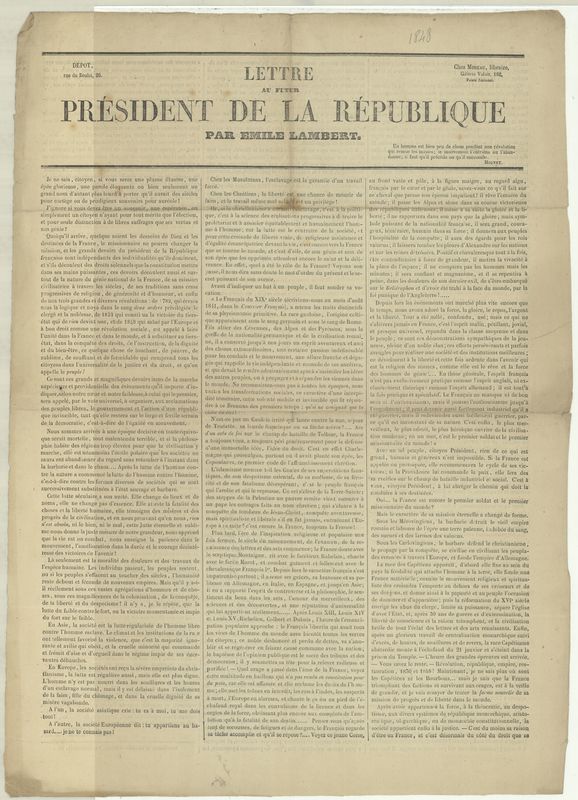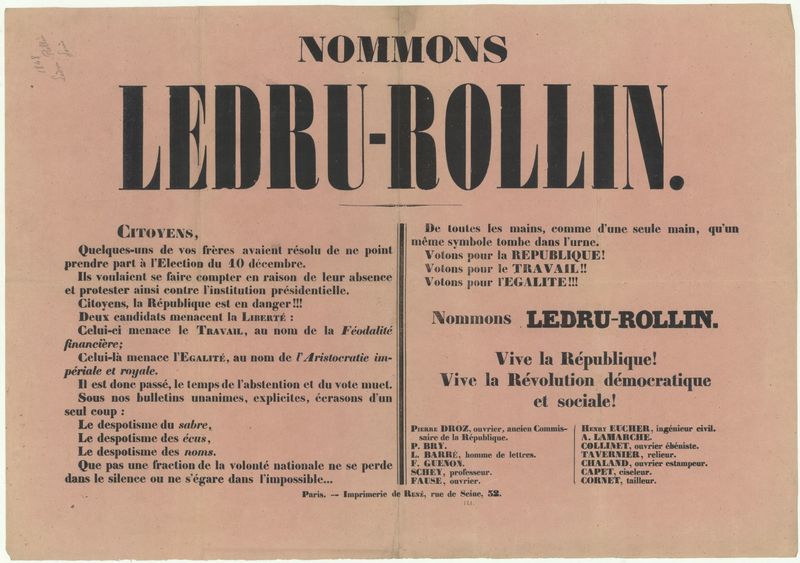Presidential Propaganda: The Election of 1848
Following a period of Assembly-sanctioned dictator rule by Louis-Eugène Cavaignac in 1848 and the adoption of the Constitution the same year, the Assembly called for an election for the newly created position of the French President. The 1848 French presidential election brought the ideological battles of the past couple years into the field of public politics and was the first presidential election in French History. Many of the political factions had a presidential candidate, including for Cavaignac himself the Moderate Republican Party, Alexandre Auguste Ledru-Rollin for the Democratic Socialists, and Louis-Napoléon Bonaparte for the Bonapartists. France's first direct election, it would be decided by the popular vote. Held on 10 December 1848, the resulting winner was Louis-Napoléon Bonaparte with a commanding 74% share of the popular vote. Wishing to emulate his uncle, Louis-Napoléon would transition from the very first President in French history to the first Emperor of the Second French Empire, later styling himself as Napoleon III. The first presidential election in French History ultimately paved the way for Napoleon III to revert the country back to an imperial system.




